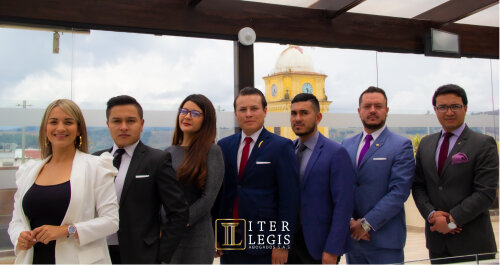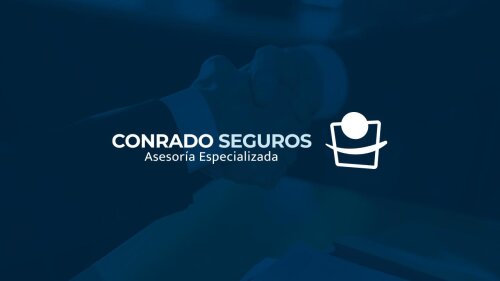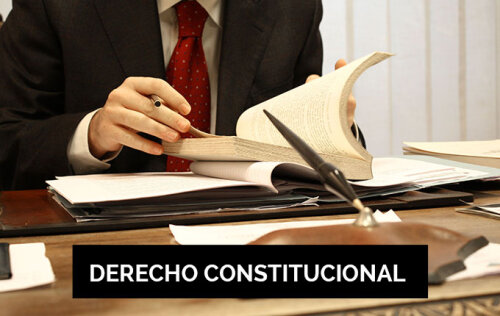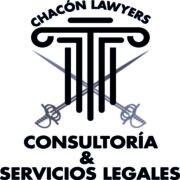Best Water Law Lawyers in Colombia
Share your needs with us, get contacted by law firms.
Free. Takes 2 min.
Or refine your search by selecting a city:
List of the best lawyers in Colombia
About Water Law in Colombia
Water Law in Colombia encompasses the set of norms, regulations, and judicial decisions that govern the management, use, protection, and distribution of water resources. Colombian Water Law is rooted in the Constitution and regulated by a combination of national laws, decrees, and local ordinances that address everything from water ownership and usage rights to environmental preservation and dispute resolution. The government, through various ministries and agencies, has established a comprehensive legal framework that recognizes water as a public good and prioritizes its sustainable management for present and future generations.
Why You May Need a Lawyer
Water Law is a specialized and often complex field. Individuals, communities, businesses, and organizations may need legal help in several scenarios, such as:
- Securing permits for water usage or abstraction
- Addressing disputes related to water rights or access
- Navigating environmental regulations for projects affecting water bodies
- Defending against or filing complaints about water pollution
- Participating in processes of water allocation or redistribution
- Challenging administrative decisions regarding water management
- Understanding and complying with mining, agricultural, or industrial water obligations
- Protecting community water rights, especially for indigenous and rural populations
- Responding to regulatory enforcement actions or sanctions
- Ensuring lawful use and conservation of water in development projects
Legal advice can help avoid costly mistakes, ensure compliance, and protect your interests in all matters related to water resources.
Local Laws Overview
Colombian Water Law is primarily built upon the Colombian Constitution of 1991, which declares water as a public good under the control of the State, intended to ensure collective access and sustainable use. The key legislative pillars include:
- Law 99 of 1993 - Establishes the National Environmental System and recognizes water as a vital natural resource subject to special protection.
- Decree 2811 of 1974 (Natural Resources Code) - Contains specific provisions on water use rights, permits, concessions, and obligations of users.
- Decree 1076 of 2015 - Consolidates previous regulations and further details procedures for water use permits, concessions, discharge standards, and environmental licenses.
- Water concessions - Required for individuals or entities extracting and using water for different purposes, obtained through the regional environmental authorities (Corporaciones Autónomas Regionales - CAR).
- Environmental impact assessments and public participation - Many activities require citizen consultation and official environmental review before proceeding.
- Sanctions and enforcement - Authorities can impose penalties for unauthorized use, contamination, or misuse of water bodies.
- Special consideration for vulnerable populations - Laws assure priority access to water for indigenous and rural communities and recognize collective rights to water.
Regional and municipal governments also issue regulations and zoning plans that must be considered, especially when they impact local watercourses or supply systems.
Frequently Asked Questions
What is a water concession in Colombia, and do I need one?
A water concession is an official permit authorizing the use or extraction of water from natural sources such as rivers, lakes, or aquifers. If you want to use water for agricultural, industrial, commercial, or large-scale domestic purposes, you need a concession issued by the relevant environmental authority.
How is water considered under Colombian law?
Water is a public good subject to the administration and control of the State. Its use is prioritized for human consumption, ecosystem preservation, and then economic activities according to legal provisions.
Who grants water use permits or concessions?
Water concessions are generally granted by regional environmental authorities (CARs) or special administrative agencies such as the National Authority of Environmental Licenses (ANLA), depending on the scope and impact of the project.
What activities require an environmental license regarding water?
Projects that may generate significant impacts on water resources, such as construction near rivers, extraction of water for industrial use, wastewater discharges, and alteration of watercourses, usually require an environmental license and/or a water concession.
What happens if someone uses water resources without a permit?
Unauthorized use of water can result in fines, the closure of facilities, mandatory restoration measures, and possible criminal charges depending on harm caused to the environment or communities.
How are conflicts over water resolved in Colombia?
Conflicts can be resolved through administrative procedures before the environmental authorities, mediation, or, if necessary, through lawsuits in administrative or civil courts.
Are there special rights for indigenous and rural communities regarding water?
Yes, the law recognizes priority access and special protection for indigenous and rural communities' collective water rights, ensuring their participation in decision-making processes and safeguarding traditional uses.
Can water rights be transferred or inherited?
Generally, water concessions are personal and cannot be freely transferred. Any change or assignment often requires approval from the granting authority.
What should I do if I notice pollution or illegal use of water sources?
You should report the issue to the appropriate regional environmental authority (CAR), the Ministry of Environment, or local government officials, who are responsible for investigation and enforcement.
How long does it take to obtain a water concession or use permit?
Timelines can vary significantly by region and complexity of the project. In straightforward cases, it can take several months, while more complex requests may take a year or more due to technical studies and public consultation.
Additional Resources
If you need more information or assistance regarding Water Law in Colombia, consider contacting or consulting the following resources:
- Ministry of Environment and Sustainable Development (Ministerio de Ambiente y Desarrollo Sostenible) - The main government authority overseeing water resource policies and management.
- Regional Environmental Authorities (CAR - Corporaciones Autónomas Regionales) - Administrate water concessions, monitor compliance, and manage local water resources.
- National Environmental Licensing Authority (ANLA) - Issues environmental licenses and oversees major projects involving water resources.
- Ombudsman’s Office (Defensoría del Pueblo) - Provides legal assistance in protecting the water rights of vulnerable or affected populations.
- Legal clinics and environmental NGOs such as the Asociación Interamericana para la Defensa del Ambiente (AIDA) and Fundación Natura Colombia provide guidance and advocacy on water law matters.
Next Steps
If you require legal assistance in matters related to Water Law in Colombia, consider the following steps:
- Gather and organize all relevant information related to your case, such as permits, correspondence with authorities, and details of the water resource in question.
- Identify whether your issue concerns administrative, civil, or environmental aspects and determine which authority has jurisdiction.
- Consult with a qualified attorney or law firm specializing in environmental or water law. If resources are limited, seek help from public defenders, university legal clinics, or NGOs focused on environmental protection.
- Follow up with the appropriate governmental body or authority if your case involves administrative proceedings or complaints.
- Remain proactive in monitoring timelines, responding to official requests, and gathering supporting documents as needed during your proceedings.
Remember, timely legal advice is key to defending your interests and ensuring compliance with all applicable water regulations in Colombia.
Lawzana helps you find the best lawyers and law firms in Colombia through a curated and pre-screened list of qualified legal professionals. Our platform offers rankings and detailed profiles of attorneys and law firms, allowing you to compare based on practice areas, including Water Law, experience, and client feedback.
Each profile includes a description of the firm's areas of practice, client reviews, team members and partners, year of establishment, spoken languages, office locations, contact information, social media presence, and any published articles or resources. Most firms on our platform speak English and are experienced in both local and international legal matters.
Get a quote from top-rated law firms in Colombia — quickly, securely, and without unnecessary hassle.
Disclaimer:
The information provided on this page is for general informational purposes only and does not constitute legal advice. While we strive to ensure the accuracy and relevance of the content, legal information may change over time, and interpretations of the law can vary. You should always consult with a qualified legal professional for advice specific to your situation.
We disclaim all liability for actions taken or not taken based on the content of this page. If you believe any information is incorrect or outdated, please contact us, and we will review and update it where appropriate.
Browse water law law firms by city in Colombia
Refine your search by selecting a city.















